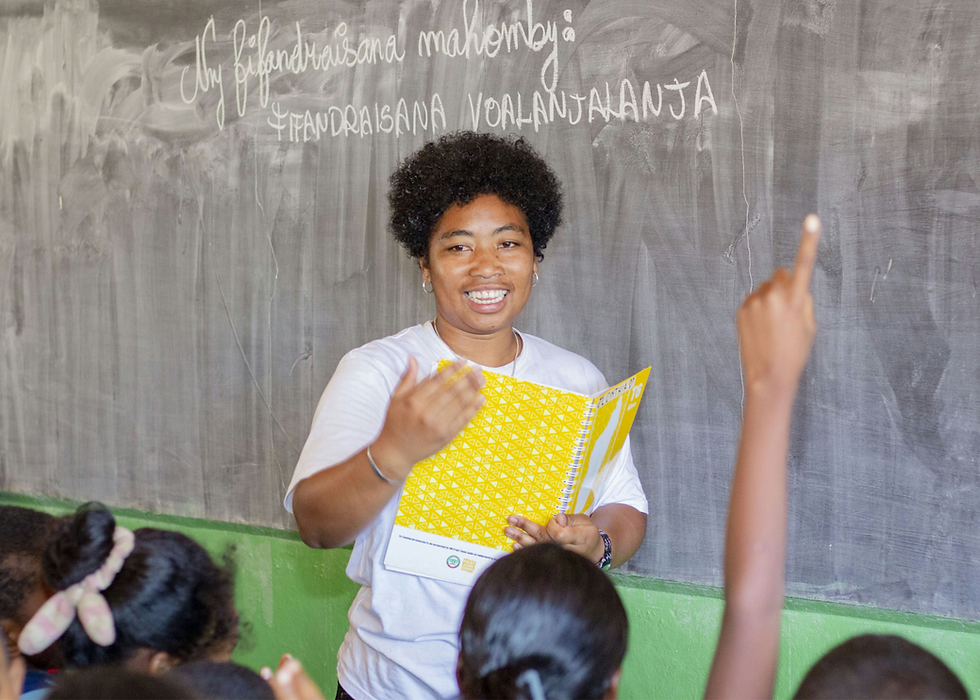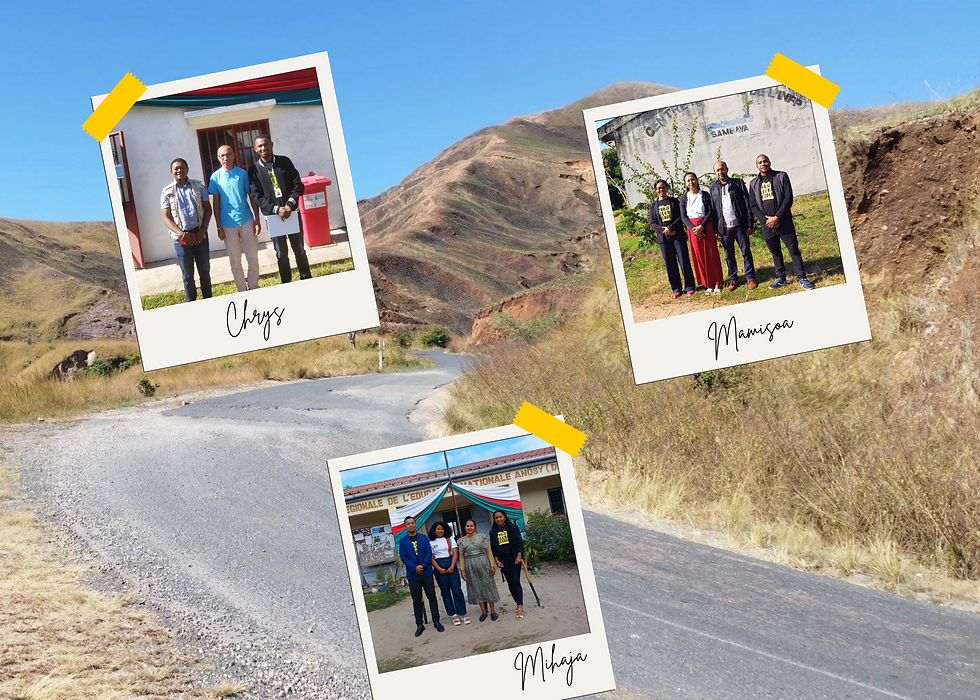Connecting the Dots to Strengthen Community-Based Violence Response Networks in Rural Madagascar
- Projet Jeune Leader

- Jan 28, 2024
- 3 min read

Our CSE Educators held over 100 counseling cases last year with adolescents about cases of violence and abuse. In hundreds of other cases, students shared familial and intimate relationship issues.
As trusted and accessible young adults, our Educators are often the first people that young adolescents confide in and turn to for help.
Recognizing the critical first-line support role that our Educators fill, we have doubled down on our efforts to improve how we respond to cases of violence. Over the past year, with support from the Australian Embassy’s Direct Aid Program, we have partnered with the Ministry of Population and Social Services in Haute Matsiatra region — which provides the only public violence response services — to strengthen community-based referral services and fill critical gaps in violence response services for adolescents.
Challenges of a Limited Referral Pathway
Since our early days, our CSE Educators have been trained to refer youth who are survivors of violence to a violence response specialist at the regional Ministry of Population office in the regional capital city of Fianarantsoa.
However, we have long recognized that this referral pathway is insufficient. For one, our Educators remain the first-line responders, and need additional training on safeguarding and psychological support. Secondly, Fianarantsoa is too far for most of the youth we serve to travel to. Thirdly, our partner at the Ministry is already overburdened; we cannot rely on a single person. However, there are few others across the Ministry’s district-level branches who are well-equipped to provide youth-friendly and survivor-centered support.
Improving First-Line — and Sustained — Support Services
In late 2023, we brought together our 22 PJL Educators in the Haute Matsiatra region with district-level service providers from the Ministry of Population. Our goal: to strengthen a community-based referral network to ensure all young people can access support and services in cases of violence no matter where they live.
We convened the full group for a hands-on workshop facilitated by our fantastic consultant clinical psychologist, Saraha Randriamorasoa, and Research, Learning, and Accountability Coordinator, Tahiry Anjarasoa. Through the workshop, participants deepened their skills in “psychological first aid,” understanding of concepts of trauma and different types of violence, discussed how to support a survivor safely and ethically in the event of a disclosure of violence. (This supplemented a broader capacity building effort with Ministry of Population service providers.) The information was critical for their work. Explained PJL Educator Elysé: “When we talked about trauma, I was reminded of the behaviors of those children that came to me with experiences of violence. Some wouldn’t talk at all, while others couldn’t stop talking.”
During the second part of the workshop, participants conducted a resource mapping activity. The group brainstormed informal and formal violence response and reporting services at the community level, and mapped where the referral and reporting systems break down. They began outlining an initial set of strategies to improve referral and coordination between the Educators and district-level violence response specialists of the Ministry. “This workshop will help us social actors in the district where I work to better help and support children who experience violence,” shared PJL Educator Erus.

Operationalizing a Stronger Community-Based Referral Network
The workshop has fed into a broader effort we are leading with child protection and health care service providers to improve local-level youth support services (and, critically, to improve the coordination and integration between them). Our Educators are continuing to meet with Ministry of Population service providers in district-specific groups and are involving other local “support actors” that they have identified together (commune chiefs, school leaders, church leaders, health care providers, community associations, etc.). We are also working to strengthen our support and training systems for our own Educators in dealing with cases of violence among their students.
Our hope is that our Educators are now better equipped to provide critical first-line support to vulnerable youth — and that we can play a part in bringing together other key actors to combat all forms of violence and support youth at their most vulnerable.
Our collaboration with the Ministry of Population and Social Services over the past year was made possible with generous support from the Australian Embassy’s Direct Aid Program (learn more about the rest of the project here).



